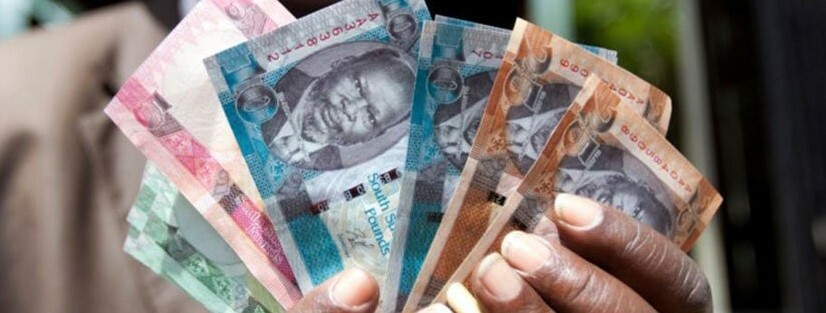Residents of Awerial County in Lakes State have raised complaints against traders for rejecting small denominations like 5, 10, 20 and 25 South Sudanese Pounds for the purchase of commodities.
For the last one year, traders in Mingkaman have been accused of refusing sales of goods for smaller denominations of South Sudan’s legal tender. This Tuesday, one resident was left angry after a trader declined to accept payment for 10kg of maize flour in smaller denominations of SSP 10, 20 and 25. The buyer had received SSP 6,600 in small denominations from a relative.
In South Sudan, 1 SSP has already disappeared from circulation, but the denominations that are still in circulation are SSP 5, 10, 25, 50, 100, 500, and 1,000. It is reported that SSP 5 is also disappearing from circulation.
Many residents who spoke to Radio Tamazuj want the national government to intervene in this matter before it leads to insecurity.
Andrew Wal Wuoi, a local citizen from an Internally Displaced Person’s (IDP) camp in Mingkaman town, told Radio Tamazuj on Tuesday that a relative sent him SSP 6,600 in 10, 20 and 25 note bills from Bor to buy at least 10 kg maize flow for his family but traders in Mingkaman refused to accept the money.
“Now, I am still wondering with 6,600 SSP in my hands. I have tried to send them back to Bor through mobile money transfer but they are also refusing 10, 20 and 25 SSP and these small legal tenders of 10, 20 and 25 SSP are working there in Bor Town. I don’t know why traders refused to accept,” he asked.
Karlo Kuot , a resident of Mingkaman, also said that there is no one that will accept SSP 10, 20 or 25. Kuot said traders will definitely not accept SSP 5 note bills.
He said only four legal tender notes of SSP 50, 100, 500, and 1,000 are acceptable in the market in Mingkaman.
“The only thing you can do when you have small legal tenders of 10, 20 or 25 SSP is either mix them with big notes or take them to the bank for exchange and get a big note,” he said.
He said there is no sweet or biscuit that you can buy with SSP 10, 20, 25 or 50. The starting price for most commodities in the market is SSP 100.
Ahmed Mohammed, a trader in the Mingkaman market, said that no one refuses to accept SSP note bills of 5, 10, 20 and 25.
“There are items like sweets one can buy with SSP 5, 10, 20 or 25 in the big shops. Only small canteens cannot accept small notes here in the Mingkaman market. But big shops accept small South Sudanese Pound notes,” he said.
“People are not the same in the market. There are some people who reject them and there are those who accept them. Like myself, I do accept all of them,” he said.
When contacted, a Town clerk in Awerial County, Abraham Deng Cuei, said that he invited representatives of traders after receiving many reports of complaints from residents in Mingkaman markets.
“By the time I heard this complaint. I called a meeting with traders in my office and asked them why they refused to accept 10, 20 and 25 SSP from the citizens who wanted to buy items from the market, but the traders explained to me that the small legal tender had lost its value and that it can’t cope with the market prices or buy any item from the market,” he said.
“I asked them to go back to the market for another discussion but until now they did not report back to the office for a final meeting,” Deng Cuei stated.
He said he will form a five-member committee to assess and investigate the reason why traders have refused to accept the SSP 10, 20, and 25 notes from residents. The investigation and assessment of the committee will form the basis for issuing an order to penalize traders who will continue to reject smaller denominations of the South Sudanese legal tender.




